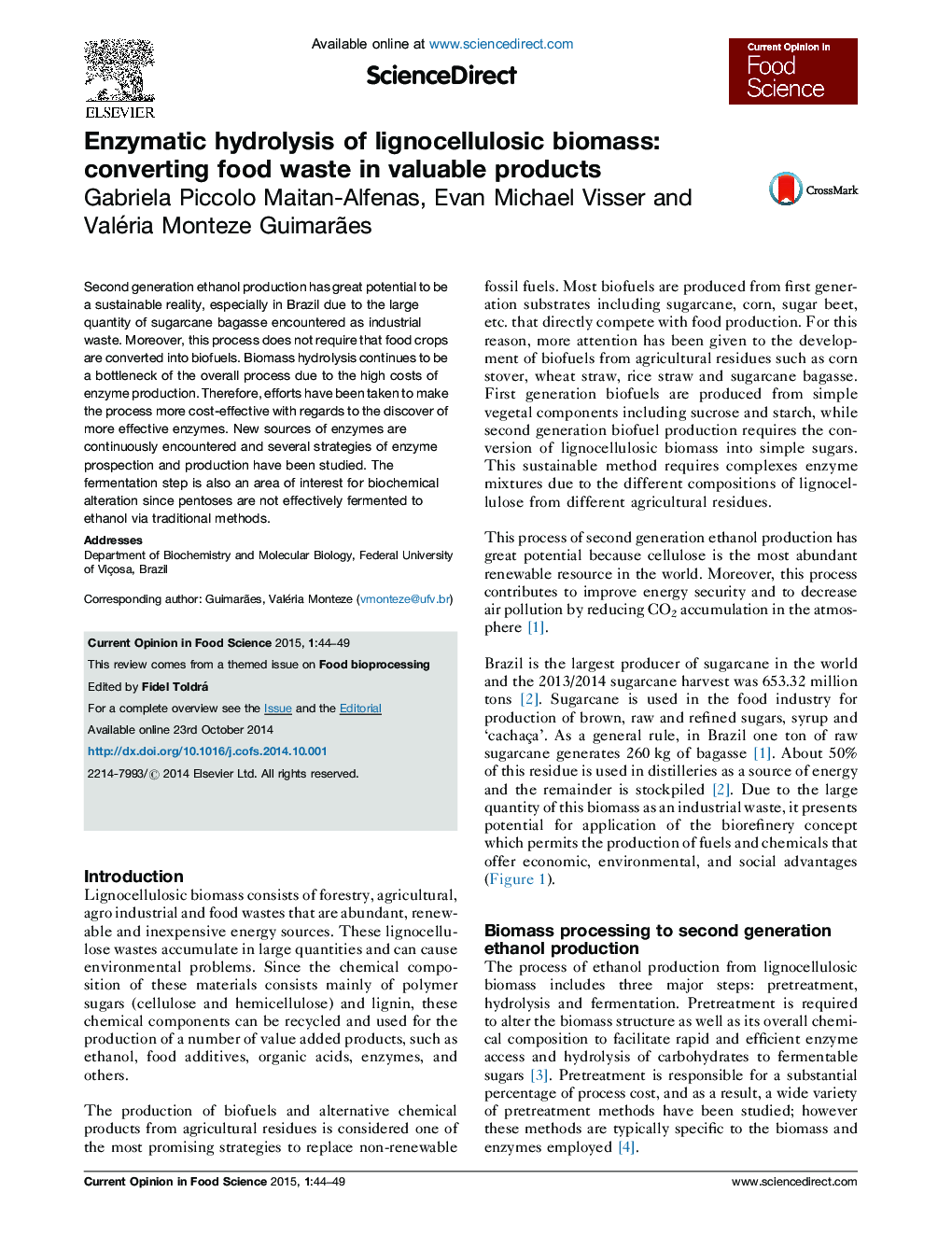| Article ID | Journal | Published Year | Pages | File Type |
|---|---|---|---|---|
| 2079800 | Current Opinion in Food Science | 2015 | 6 Pages |
•Second generation ethanol production does not compete with food production.•The high-cost of enzymes is a challenge to be overcome for biomass hydrolysis.•New technologies are being studied to find more effective enzymes for saccharification.•Fermentation of pentoses in high yields has yet to become viable.
Second generation ethanol production has great potential to be a sustainable reality, especially in Brazil due to the large quantity of sugarcane bagasse encountered as industrial waste. Moreover, this process does not require that food crops are converted into biofuels. Biomass hydrolysis continues to be a bottleneck of the overall process due to the high costs of enzyme production. Therefore, efforts have been taken to make the process more cost-effective with regards to the discover of more effective enzymes. New sources of enzymes are continuously encountered and several strategies of enzyme prospection and production have been studied. The fermentation step is also an area of interest for biochemical alteration since pentoses are not effectively fermented to ethanol via traditional methods.
